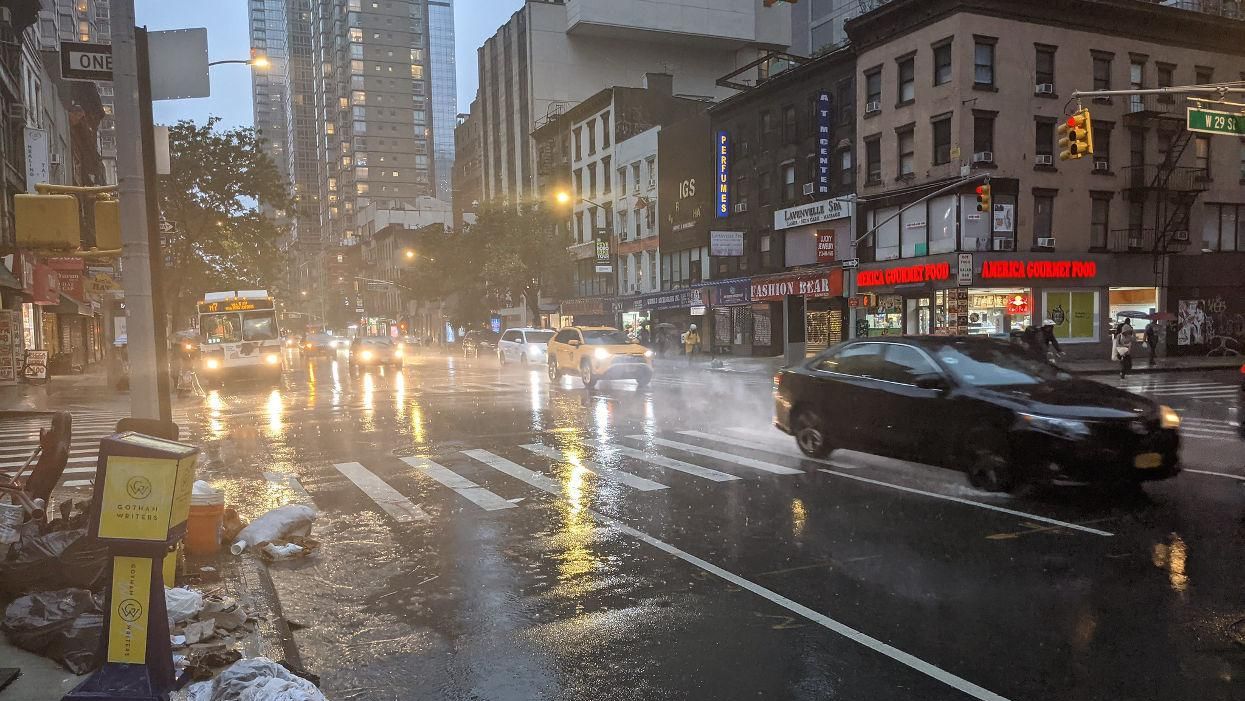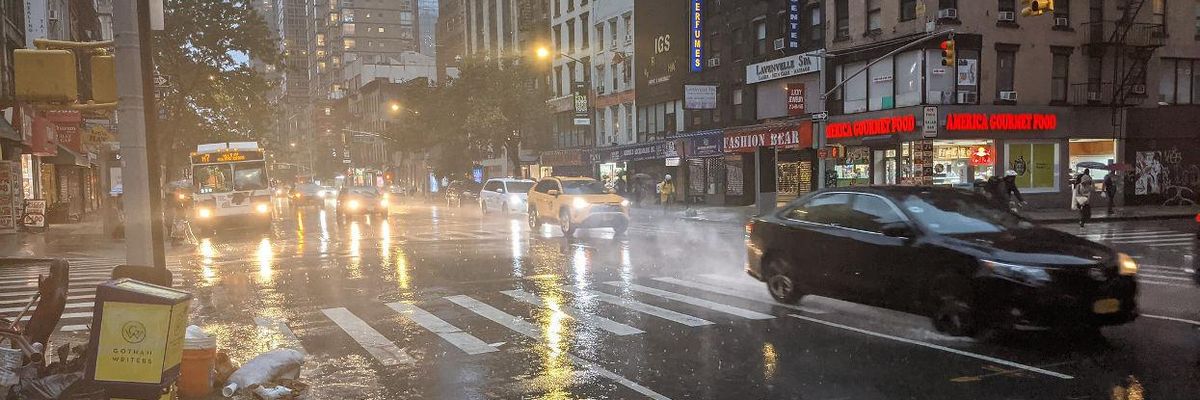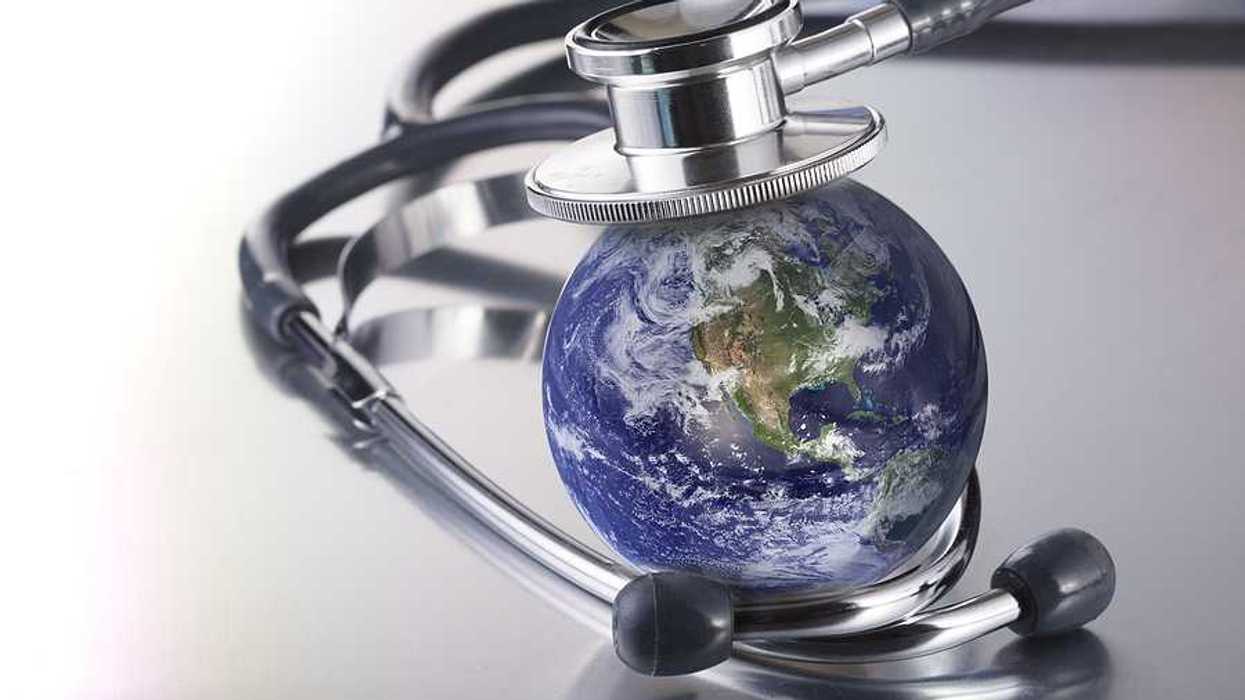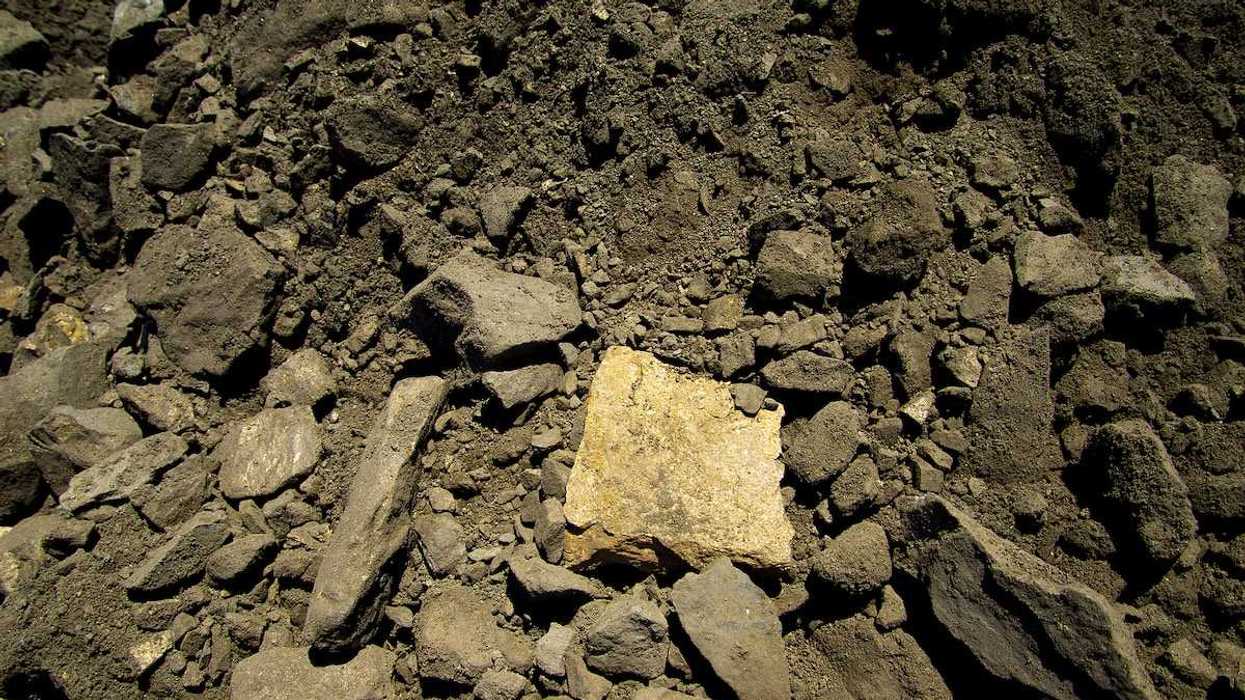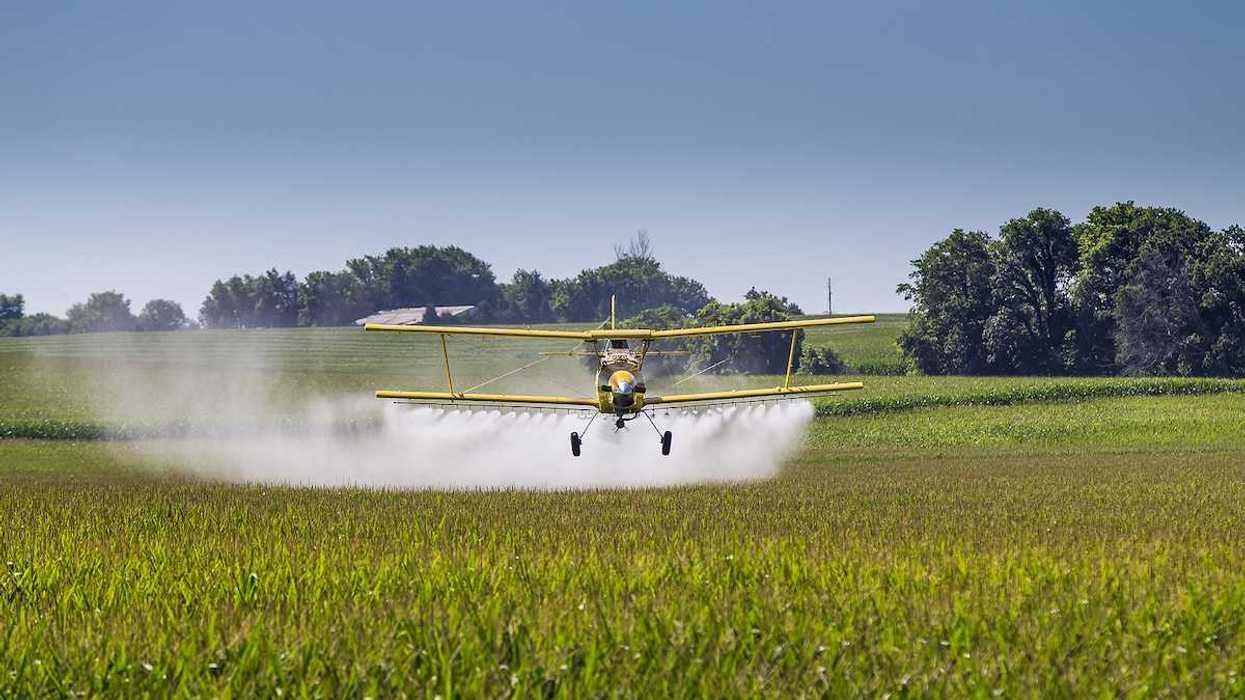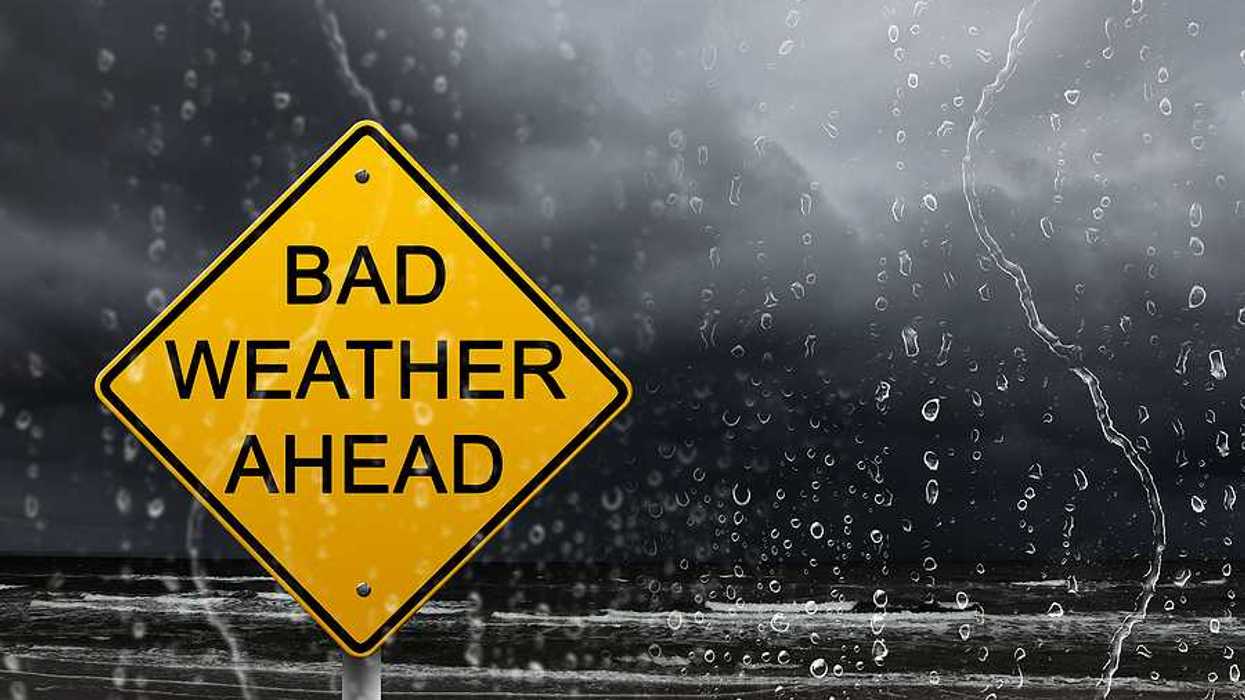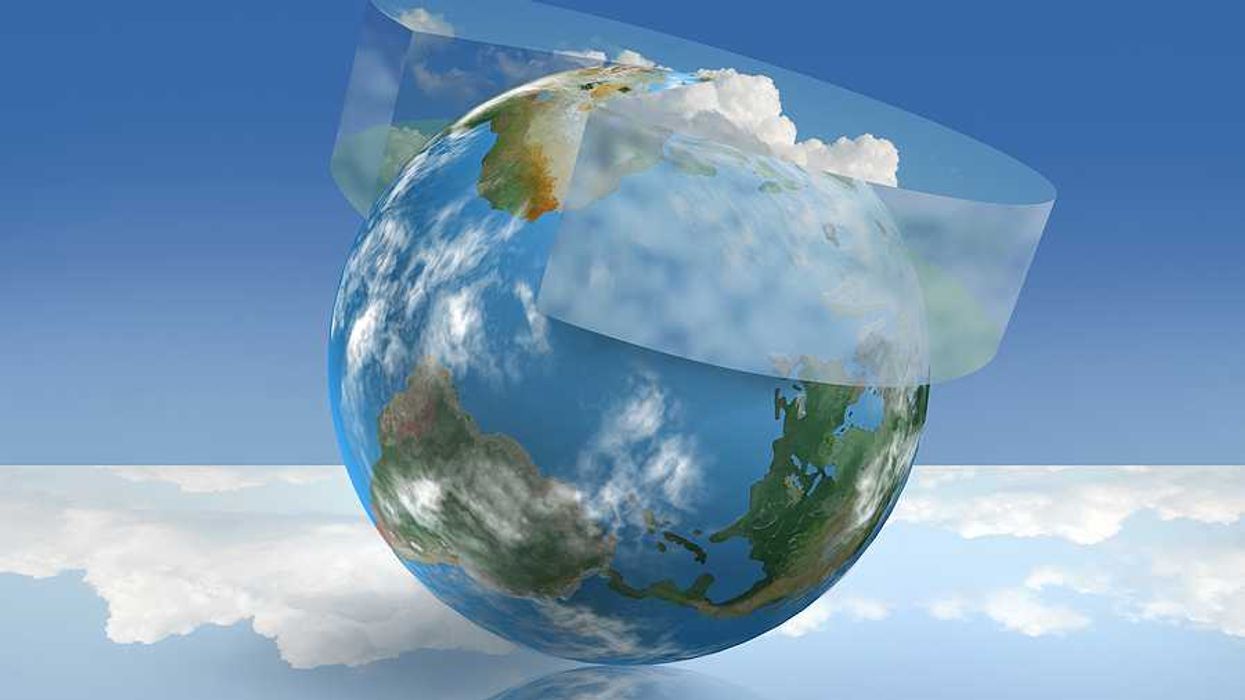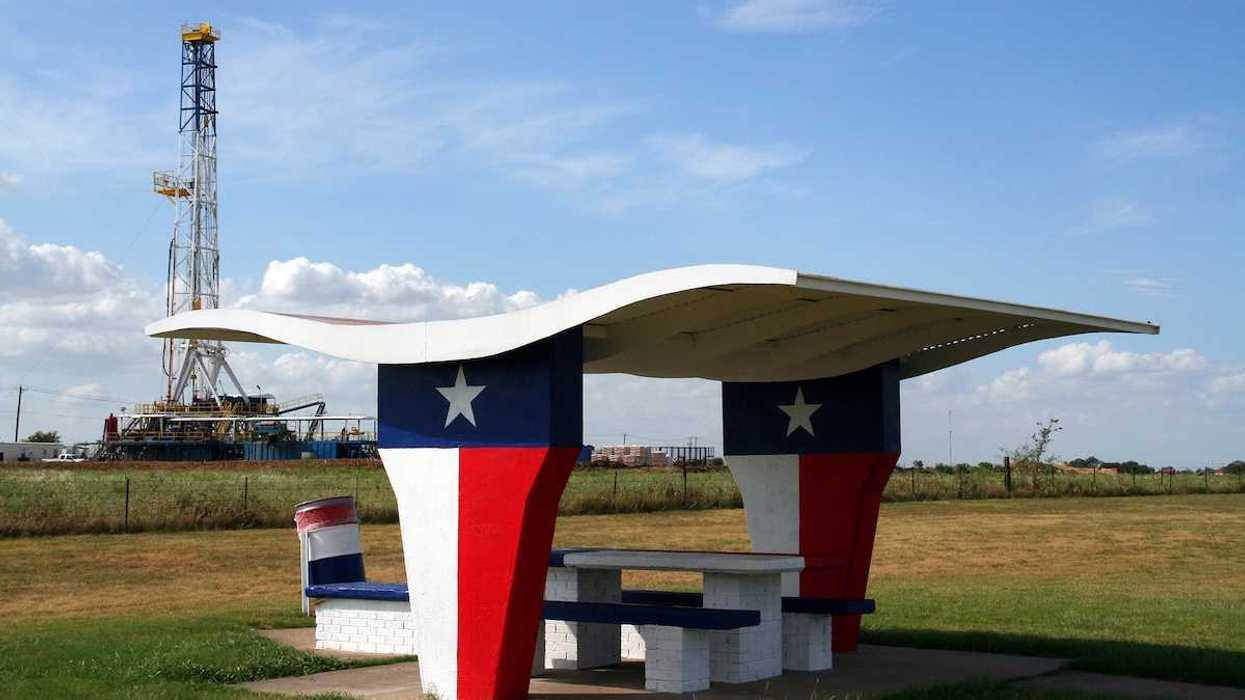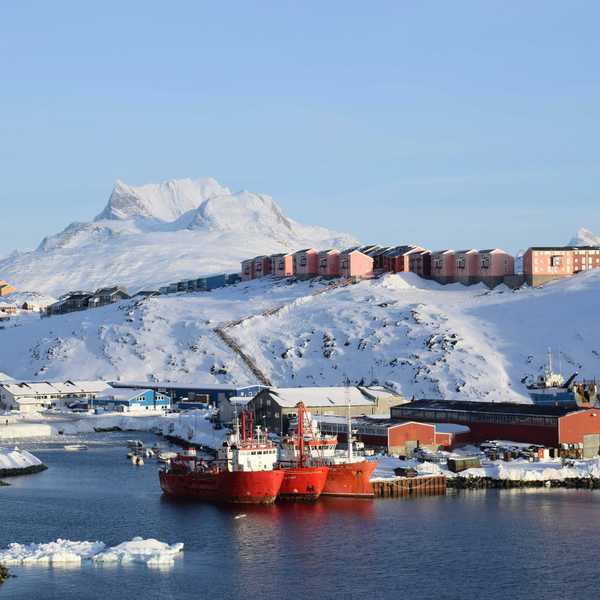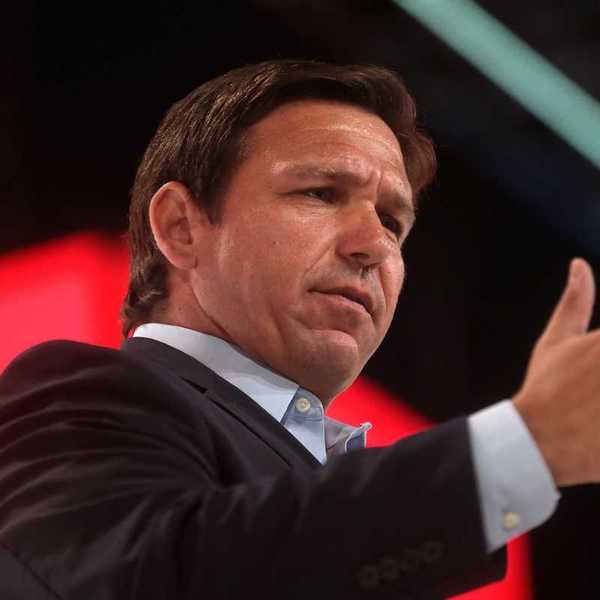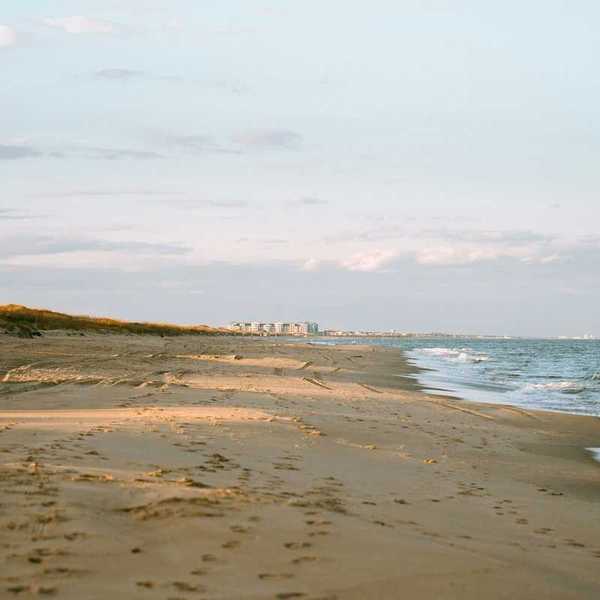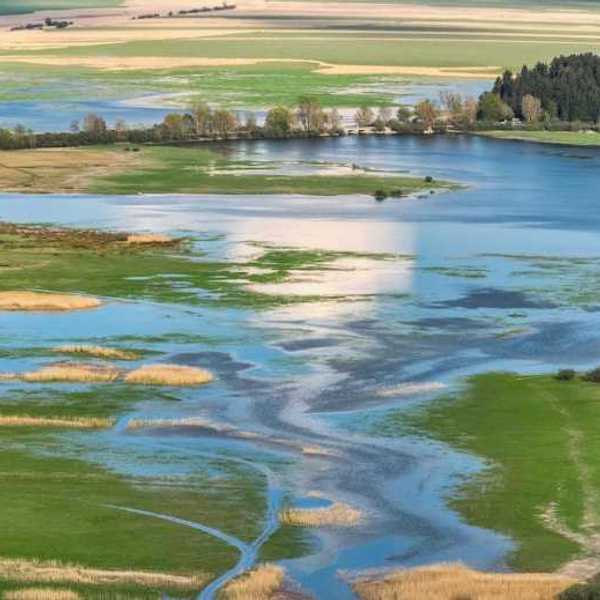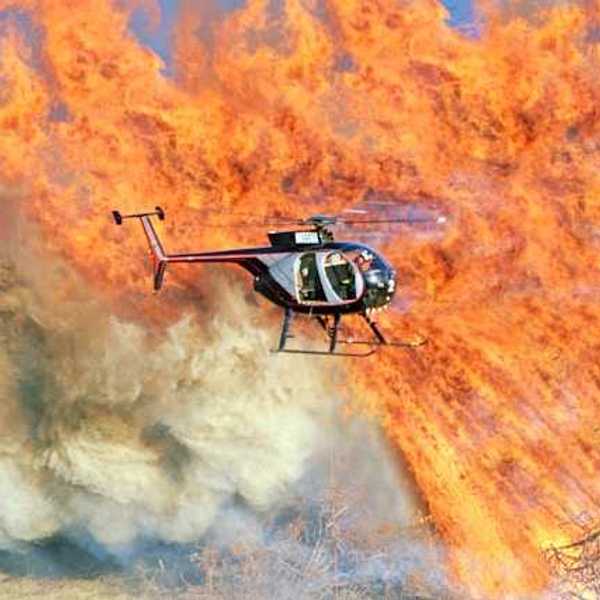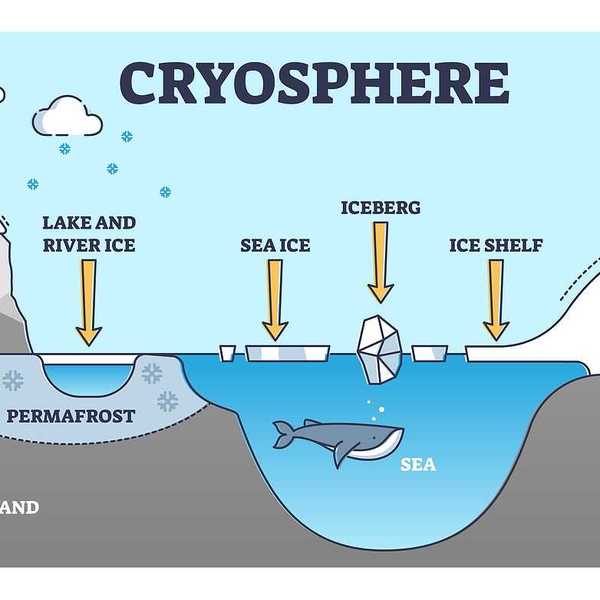Until Wednesday night, climate change was a road show: Fires in California, floods in Germany, and melting ice caps in wherever.
But suddenly, hellacious rain jumped the turnstiles beneath Times Square and poured sideways under the partial roof meant to keep the U.S. Tennis Open dry. The bridge-and-tunnel people over in New Jersey woke up to two feet of mud in the streets and trees felled by tornados.
If you can't bring the media to the climate change, let's try bringing climate change to the media, shall we? New York-based anchors were gaga-eyed over the torrential rain and "apocalyptic" weather. The wall-to-wall coverage on cable news big-footed the other immense stories in play: COVID-19, Afghanistan, Hurricane Ida's aftermath on the Gulf Coast, and the Supreme Court's big first step toward undoing Roe vs. Wade, the historic 1973 ruling that gave constitutional protection for abortion rights.
A special nod to Fox News, which managed to duck mentioning climate change wherever possible. A staffer for the liberal news watchdog group Media Matters for America tweeted that Fox dumped out of covering a live briefing by New York officials who were "getting political" by mentioning climate change.
Most of the news media is playing "Ida Takes New York" like it was "Godzilla Takes Tokyo." I'm fine with that. My problem is that Climate Godzilla is striking somewhere around the world every couple of days, with yawning indifference from the U.S. broadcast media. A partial list for the first two-thirds of 2021:
- Record high temperatures in Greece led to a summer of 500+ wildfires;
- A "heat dome" settled over western Canada setting an all-time national temperature record of 121 °F;
- Temperate Portland, Oregon, reached an unheard-of 118°F;
- With some areas receiving what's typically two months' rainfall in two days, more than 200 died in midsummer flooding in Germany and Belgium;
- A three-day downpour dropped a year's worth of rain on Zhengzhou, China;
- With the bulk of Western wildfire season perhaps still to come, blazes menace Lake Tahoe and California suburbs;
- Record-low water levels in Lakes Powell and Mead suggest permanent water and hydropower problems for 40 million in Nevada, Arizona, and Southern California.
And just how long of a warning have we had? Here's one screamer from New Jersey:
On October 23, 1989, New Jersey Governor Thomas Kean – that's Republican Governor Thomas Kean — issued an executive order directing the state to prepare for the impacts of climate change, including sea level rise and "an increase in the intensity of hurricanes and other major storms."
Twenty-three years later Superstorm Sandy destroyed piers, boardwalks, and thousands of homes along the largely unprepared Jersey Shore. Nine years after that, here we are.
Will climate finally light some editorial bulbs on the Great White Way? If it can make it there...
Peter Dykstra is our weekend editor and columnist and can be reached at pdykstra@ehn.org or @pdykstra.
His views do not necessarily represent those of EHN, The Daily Climate, or publisher, Environmental Health Sciences.
Banner photo credit: Rain on NYC's Sixth Avenue, September 1, 2021. (Credit: Eden, Janine and Jim/flickr)

